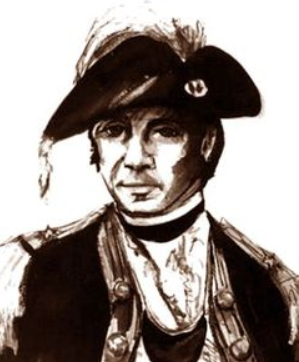Theophilus Parsons Forms The Essex Junto
Theophilus Parsons was a major player in Massachusetts politics during the American Revolution.
Although he never gained great acclaim on the national stage, the Essex Junto he started became the most influential wing of the Federalist Party.
A New Constitution
Independence had been declared.
The States began to scramble to form new governments.
Massachusetts, the powder keg which started the American Revolution, had a Constitution submitted to its citizens for approval.
This first State Constitution was rejected.
Much of the reason for its failure was due to the work of Theophilus Parsons.
Theophilus Parsons
Theophilus Parsons was one of many who believed that a government should be run by a strong central authority. The Constitution which was overturned was simply too democratic.
Parsons was not alone in this belief. During the course of his campaign to turn down the new State Government, Theophilus gained significant political clout.
Parsons was elected to the convention which took a second shot at creating a new government. This Constitution had significantly more centralized power.
During this process, a political party arose. Known as the ‘Essex Junto,’ this party originally only had a role in the Massachusetts government.
Conciliatory Resolutions
A decade later, Parsons was chosen to discuss ratification of a new government. This time, it was the United States Constitution.
As a man who favored a strong centralized government, Theophilus eagerly supported the Constitution at the Massachusetts Ratification Convention.
At this Convention, Parsons wrote the Conciliatory Resolutions, which were proposed amendments that would be sent to the new government upon ratification. These Resolutions seem to have convinced leaders such as Sam Adams and John Hancock to support the Constitution.
Once those important leaders came on board, the entire State followed.
Essex Junto
Theophilus Parsons would never play an important role on the nation scene. Instead, he would stick to Massachusetts politics, eventually being chosen as Chief Justice of the State Supreme Court.
His ‘Essex Junto,’ however, would go on to become radical leaders in the burgeoning Federalist Party.
Although Alexander Hamilton was not actually a part of the Junto, they strongly supported all of his beliefs. Additionally, they assisted him whenever they could.
Aftermath
Several members of the Junto were selected for President Washington’s Cabinet.
President Adams made the mistake of keeping those men in their positions and they used their insider knowledge to give information to Hamilton, which was used in his famous letter criticizing the Second President.
After the Virginian Dynasty began (Presidents Jefferson, Madison and Monroe), the Essex Junto became even more extreme. Eventually, they’re efforts would lead to the disastrous Hartford Convention of 1814 and the accidental downfall of the Federalists.
Had he survived that long, it is not a stretch to think that Theophilus Parsons would have been unhappy that the small, local Party he started would have been destroyed due to extremism from within.
To learn about the members of the Essex Junto who wronged President Adams, read our articles on James McHenry and Timothy Pickering.
The only publication I know of regarding the Essex Junto and it’s effect on politics in the Early Republic is ‘The Northern Confederacy’ which was published in 1912 and can be read for FREE here. It is a quick read and an extremely interesting view of the Washington and Adams Administrations.
To learn even more about these men, pick up a copy of ‘Washington’s Circle’ from the Amazon affiliate link below. This book discusses the first Cabinet in great detail.
Of course, if you are new to this site, make sure you subscribe to our email list to receive a new Founder every day.






